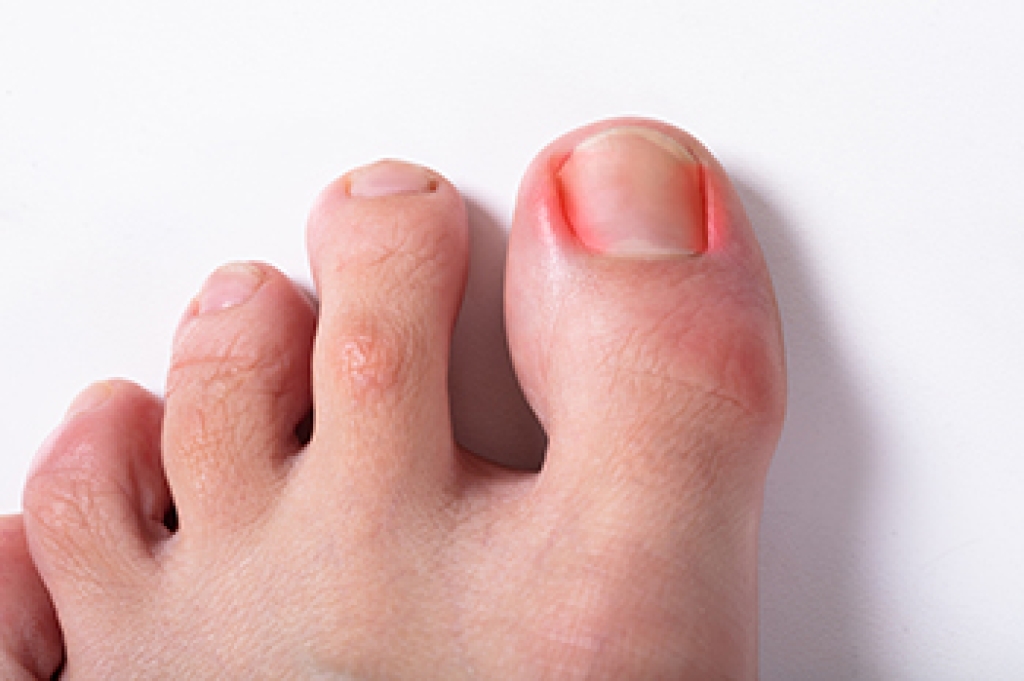
Ingrown toenails develop when the edge of the nail grows into the surrounding skin, often causing pain, swelling, and sometimes infection. This common problem usually affects the big toe and can result from trimming toenails too short or rounding the corners, which encourages the nail to curve inward as it grows. Wearing tight shoes or socks that crowd the toes can also increase the risk. To help prevent ingrown toenails, trim your toenails straight across, avoiding rounded edges. Keep nails at a moderate length, as nails that are too short are more likely to dig into the skin. Choose shoes that provide enough room in the toe area to avoid unnecessary pressure on your nails. Keeping your feet clean and dry may also help reduce risk. If you experience ongoing discomfort or signs of infection from an ingrown toenail, it is suggested you schedule an appointment with a podiatrist for appropriate treatment.
Ingrown toenails may initially present themselves as a minor discomfort, but they may progress into an infection in the skin without proper treatment. For more information about ingrown toenails, contact Mital Patel, DPM of South Shore Podiatry. Our doctor can provide the care you need to keep you pain-free and on your feet.
Ingrown Toenails
Ingrown toenails are caused when the corner or side of a toenail grows into the soft flesh surrounding it. They often result in redness, swelling, pain, and in some cases, infection. This condition typically affects the big toe and may recur if it is not treated properly.
Causes
- Improper toenail trimming
- Genetics
- Improper shoe fitting
- Injury from pedicures or nail picking
- Abnormal gait
- Poor hygiene
You are more likely to develop an ingrown toenail if you are obese, have diabetes, arthritis, or have any fungal infection in your nails. Additionally, people who have foot or toe deformities are at a higher risk of developing an ingrown toenail.
Symptoms
Some symptoms of ingrown toenails are redness, swelling, and pain. In rare cases, there may be a yellowish drainage coming from the nail.
Treatment
Ignoring an ingrown toenail can have serious complications. Infections of the nail border can progress to a deeper soft-tissue infection, which can then turn into a bone infection. You should always speak with your podiatrist if you suspect you have an ingrown toenail, especially if you have diabetes or poor circulation.
If you have any questions, please feel free to contact our office located in Massapequa, NY . We offer the newest diagnostic and treatment technologies for all your foot care needs.